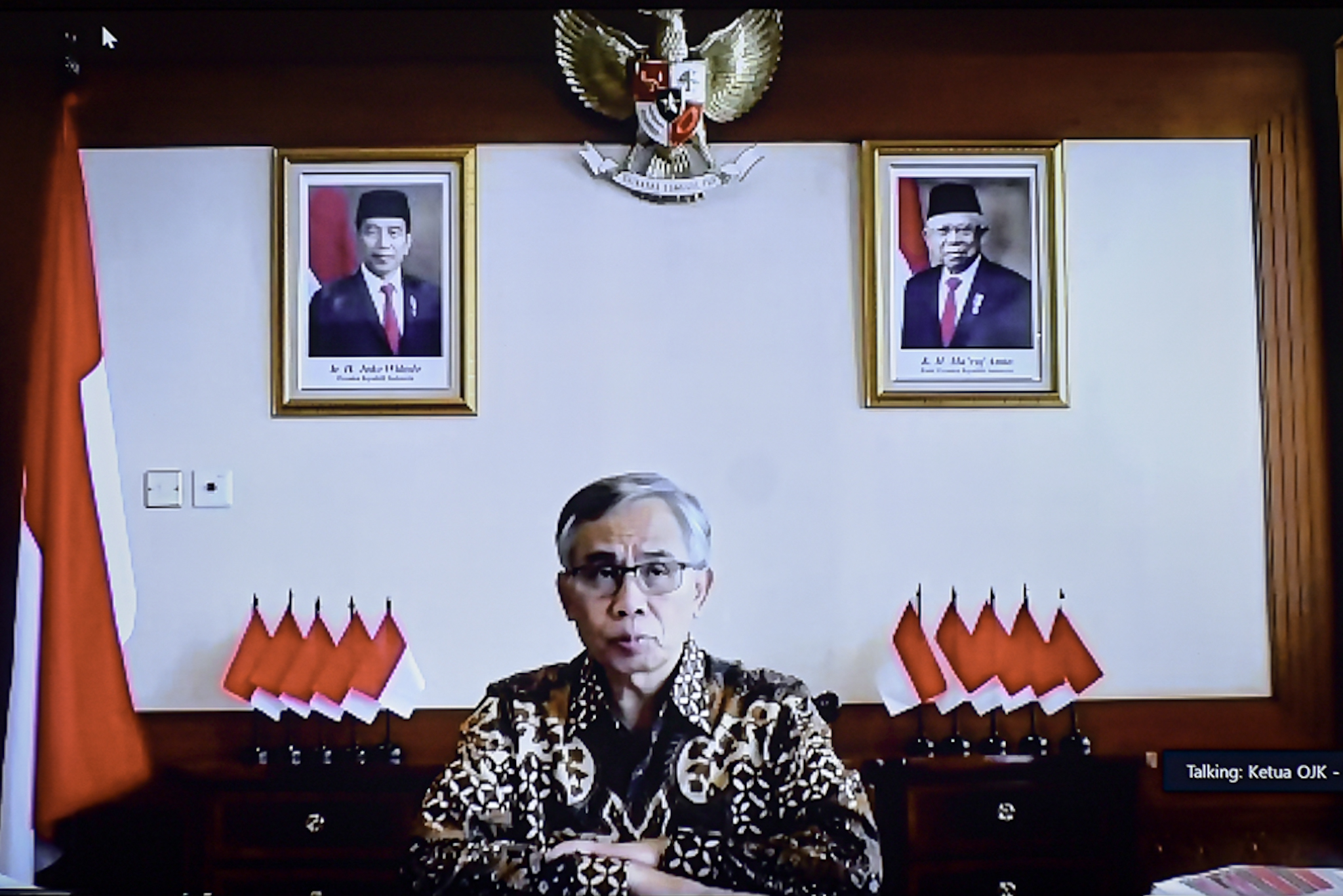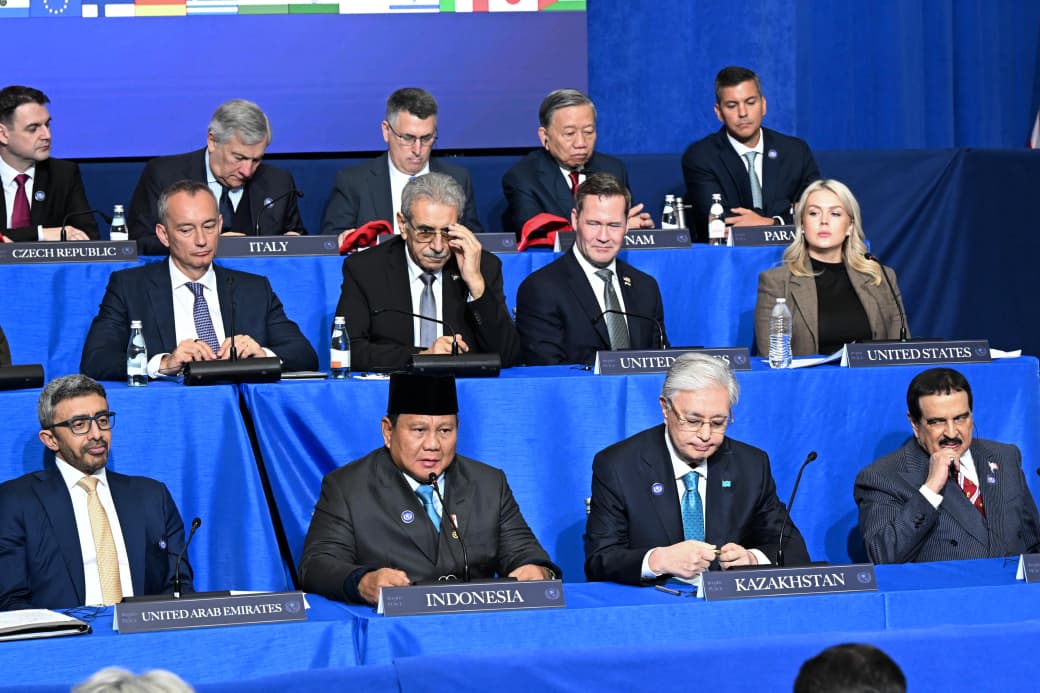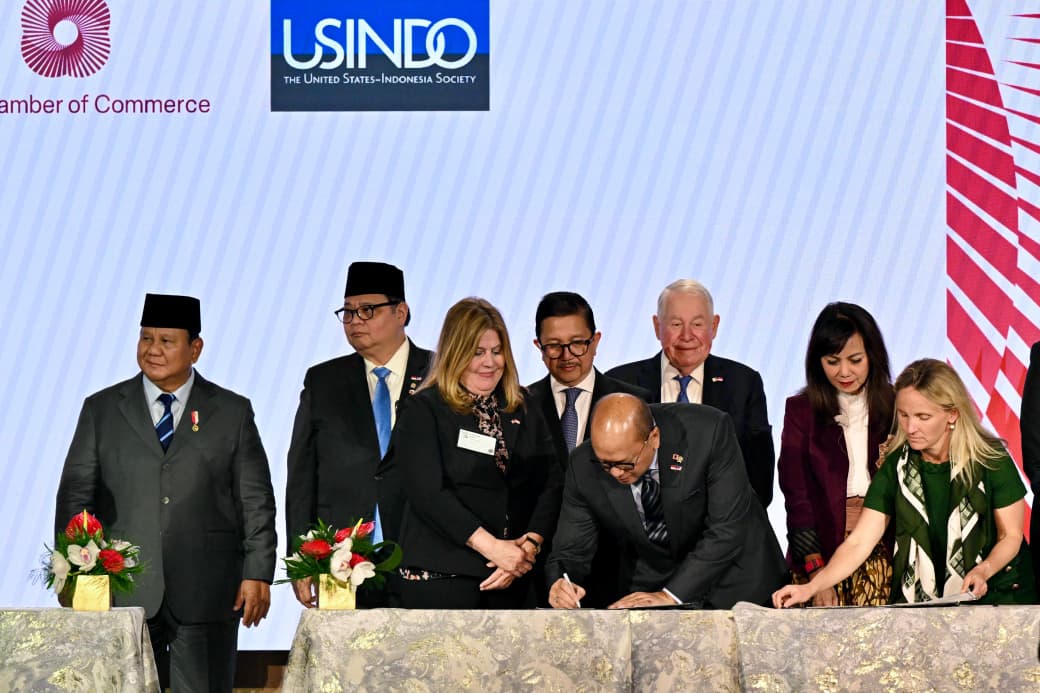OJK: Financial, Real Sector Policies to Ease COVID-19 Impacts on Business People

The Chairman of the OJK (Financial Services Authority) delivers his statement after a limited meeting, Wednesday (3/6). (Photo by: PR/Agung).
The Government has announced it will implement financial and real sector policies in a bid to ease the impacts of COVID-19 towards business actors.
“We welcome all stakeholders and entrepreneurs, the financial as well as real sectors. We must join hands to mitigate the impact of COVID-19,” Chairman of the Board of Commissioners of the Financial Services Authority (OJK) Wimboh Santoso said, Wednesday (3/6).
According to Wimboh, policymakers in the financial sector are aware from the beginning that COVID-19 has attracted negative sentiments in the capital market all over the world, including Indonesia.
“Therefore, stock price has dropped dramatically, without exception including in Indonesia. Usually, our shares, our index is above 6,000. It fell far below 5,000 and the figure even reached nearly 4,000,” Wimboh added.
According to Wimboh, this condition shows that the COVID-19, although the real sector at that time had not yet been affected, has negatively impacted the stock market sentiments.
“So what we did at the time was how we issued various policies on the capital market to slow down the decline in stock price, including the index, so that it does not go down too sharply,” he said.
With the implementation of various policies, mitigation scenarios, the OJK Chairman stated, positive sentiment has begun to emerge in the stock market, adding that on 3 June the index reached 4,9 albeit still volatile.
“We hope this will persist because it has been going on for almost a week. And this is due to our share policies to ease the COVID-19 impact,” Wimboh stated, adding that he expected the price to return to normal, with continuing measures, where the index is above 6,000.
The OJK Chairman also said that the two sectors are two sides of a coin.
“If the real sector is affected, business sector will be affected and automatically the financial sector, the banking sector, financial institutions will also be affected because entrepreneurs will definitely not be able to repay their loans both the interest and principal,” he said.
Furthermore, Wimboh went on to say that in normal conditions, in case the debtor fails to pay their loan, reserves must be set up which will consume capital from banks or financial institutions.
“This is our policy that we issued at the end of March, OJK Regulation (POJK) Number 11, providing incentives to financial institutions including banks in it so that they do not need to set up reserves. And this has been endorsed by the Standards Council, on the Statement of Financial Accounting Standards (PSAK) of 71 that in the context of the debtor, it must enter a restructuring scheme,” the Chairman said.
So, according to the OJK Chairperson, the restructuring scheme in the POJK is optional and due to the incentive, the loans will be restructured to performing category.
“The restructuring can apply to MSME and non-MSME debtors. The scheme is very flexible. It depends on each bank. It can delay the payment of principal and interest and it can also be haircut debt restructuring,” Wimboh said.
“On 26 May, this restructuring amounted to Rp517.2 trillion in banks with 5.3 million debtors. Of that amount, Rp250.6 trillion is in the form of MSMEs with 4.5 million debtors. Meanwhile, non-MSME restructuring reached Rp266.5 trillion with 780 thousand debtors. This is only in banking,” he explained.
In financial institutions or finance companies, according to the Chairman, as of 31 May, the restructuring has reached Rp75.08 trillion with 2.4 million contract customers, while there are still 583 thousand contracts in the approval process.
“This restructuring is the first step to provide incentives for banks and financial institutions to avoid the set up of a reserve. The next step is the implementation of various liquidity schemes where Bank Indonesia (Indonesian central bank) has already eased (with) policies by reducing the minimum statutory reserve,” the Chairman said, adding that central bank has also conducted quantitative easing (liquidity injection) amounting to more than Rp500 trillion.
“This can provide strength in the financial sector whose aggregate liquidity is maintained. And, also of course, later on, for banks with liquidity mismatch, they can sell, mortgage their debt instruments to Bank Indonesia,” Wimboh stated.
Specifically for banks, the Chairman said, if they could not meet the liquidity scheme prepared by Bank Indonesia, emergency liquidity is prepared by Ministry of Finance through participating banks.
“And of course this is a good process so that banks that are suppliers in the money market have power other than the Bank Indonesia stimulus, where finally banks have many state treasury bills, many securities. In addition, Ministry of Finance also provides additional ammunition which later will be placed in several participating banks,” Wimboh said.
The participating banks, Wimboh stated, will obtain incentives.
Wimhoh also expressed hope that the interest rate will be low in order for the participating banks to provide interbank loans with credit guarantees that are restructured by getting margin in the form of Risk-Adjusted Return (RAR).
In addition, the OJK Chairperson added, the participating banks will later use rules that could mitigate possible risks.
“The market has already practiced this. For that we will monitor it. And we have set the requirements on how banks can obtain this liquidity, which are banks which of course are categorized as banks with good credibility and good health. And later the OJK will provide this information to participating banks and also Ministry of Finance which we have already stated in the Joint Decree,” he explained.
The Governor of Bank Indonesia, according to Wimboh, can perform auto-debits if needed and if the implementing bank can not carry out its obligations to repay loans.
“The Auto-debits can be performed if the banks have macroprudential liquidity of 6%,” he added.
The OJK, the Chairman stated, also welcome various interest subsidies for MSMEs and also guarantees which guarantee premiums will be pursued by the government for additional working capital loans.
“Of course, we are very open on the discussions on how these policies can be better implemented and provide positive benefits to the business world and also the financial sector,” he concluded. (FID/EN).
Translated by: Fairuzzamani Inayatillah
Reviewed by: M. Ersan Pamungkas







